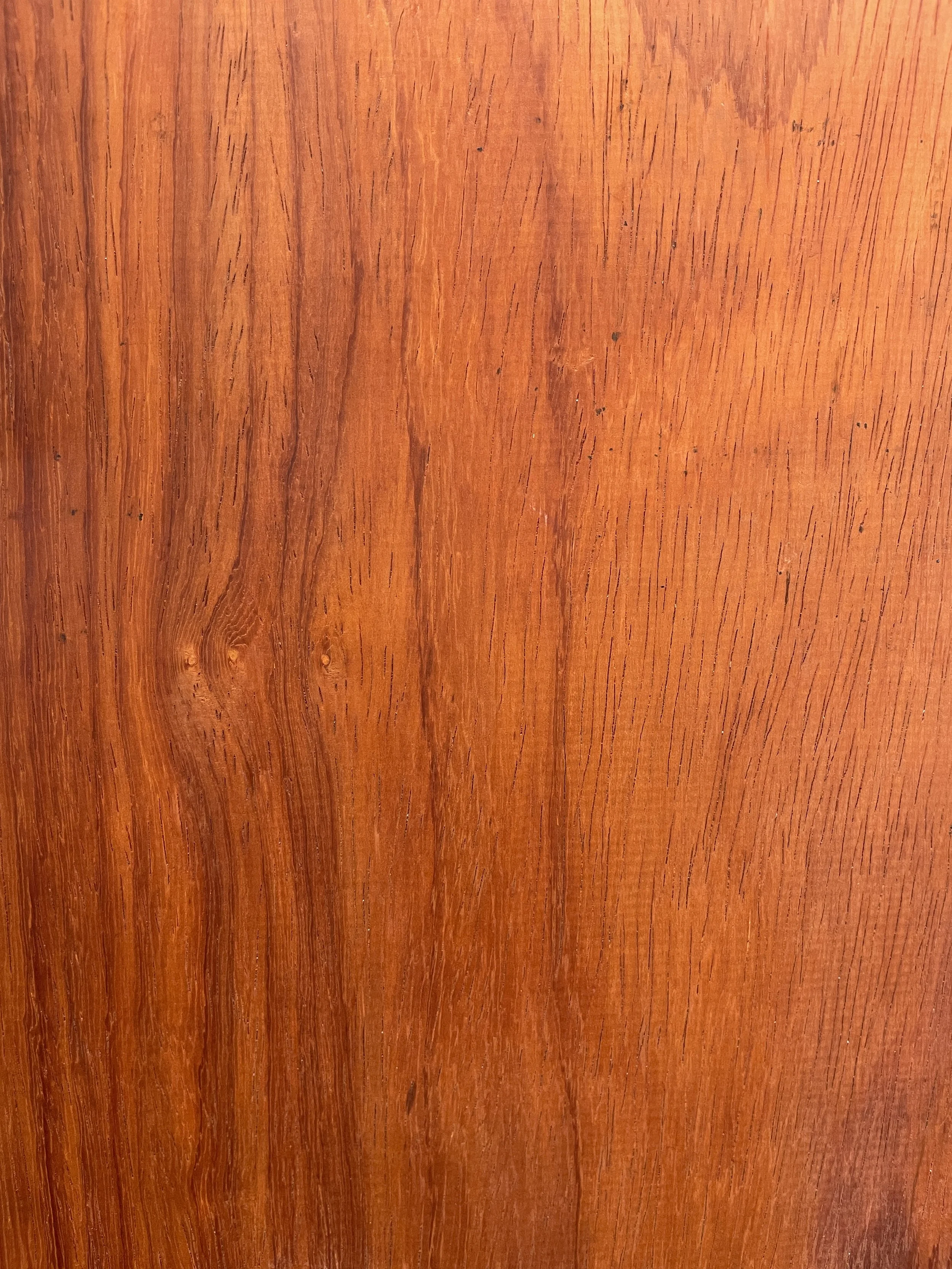OUR MATERIALS || EXOTIC HARDWOOD || PADAUK WOOD
PADAUK WOOD
Alternative Names & Variations: African Padauk, Padaouk, Mukwa, Narra
Color: Pale Pinkish-Orange to a Deep Brownish-Red
Hardness: Hard
Sustainability Status: Very Sustainable / Stable Species Population
Characteristics: Padauk wood showcases a unique heartwood color ranging from pale pinkish-orange to deep brownish-red. The wood starts with a vibrant reddish-orange hue when freshly cut, gradually darkening over time. Its grain is typically straight but can sometimes be interlocked, giving it a distinctive appearance. Padauk wood is moderately hard, making it a versatile choice for various applications.
Padauk wood is revered for its exceptional stability, making it suitable for heavy-traffic flooring, furniture, musical instruments, and more. Padauk wood is easy to work with and its popularity among woodworkers remains high. Padauk wood is a sought-after material for projects that demand both durability. Whether it is for crafting practical items or decorative pieces, Padauk wood brings a unique and vibrant touch to woodworking projects and imparts a striking, reddish accent to any piece.
STRENGTHS
-
Very easy to work with hand and machine tools. Alder wood is soft, sands easily, and finishes well.
-
Alder wood is abundant in the US, making it accessible for small and large-scale projects.
-
Once fully dried, Alder wood is sturdy, exhibiting minimal twisting or alterations in finished products.
-
Alder is more affordable than other hardwoods, making it a great option for budget-minded shoppers.
WEAKNESSES
-
Alder wood is not always the best option in terms of rot resistance. Alder wood is best for indoor furniture; it turns to pulp in moist, warm conditions.
-
Some may exhibit allergies to Alder tree pollen. In extreme cases, sensitivities to wood dust or wood oils may occur.
-
Despite being a hardwood, Alder wood is relatively soft. To protect the finish from knicks and dents, caution is needed against sharp objects.
PADAUK WOOD ALTERNATIVES




